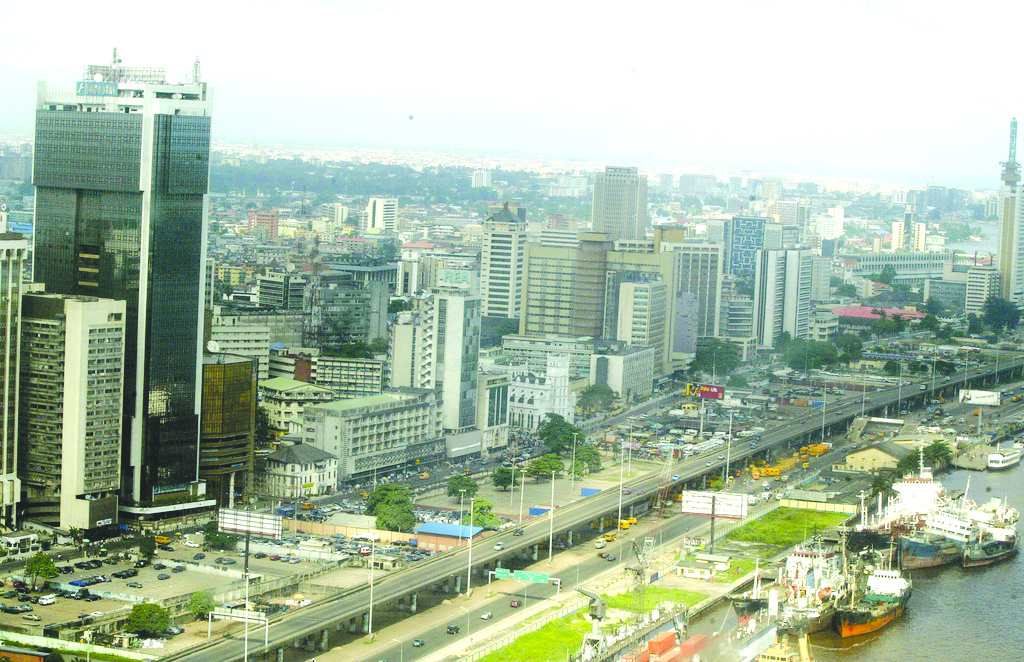[tweet][digg][stumble][Google][pinterest][follow id=”DER29709692″ size=”large” count=”true” ]
Contrary to the touted transformation of the Nigerian economy by President Goodluck Jonathan’s administration and the claim that the country is now the number one business destination in Africa, the report of the Business Confidence Level (BCL) of the Lagos Chamber of Commerce and Industry (LCCI) indicates that investors are becoming wary of the challenging business environment
By Dike Onwuamaeze
Investors and entrepreneurs’ confidence level in the Nigerian economy is yet to rise to strongly positive level by hitting 50 percent or above in the past three years. This is in spite of the touted transformation of the economy by President Goodluck Jonathan’s administration which claims that Nigeria is now the number one business destination in Africa. Rather, it declined by 5.1 percent in the third quarter of 2014 as investors and business leaders remain wary about the state of the economy and the challenging business environment.
According to the Business Confidence Level (BCL) report of the Lagos Chamber of Commerce and Industry (LCCI), the aggregate BCL fell from 19.4 percent it recorded in the second quarter to 14.3 percent in the third quarter of 2014, which is not sufficiently positive. The index had fluctuated over the last two quarters from 10.5 percent in the first quarter to 19.4 percent in the second quarter of 2014. The drop of the BCI scores at this time, according to Vincent Nwani, director, Research and Advocacy, LCCI, suggests that business leaders are largely pessimistic about expanding their investment over the next few months.
The key factors that mostly depressed the confidence level of business leaders in Nigeria, according to Nwani, are security challenges across the country, political transition, electioneering activities and its associated risks, policy uncertainties, delay in cargo clearing, poor access to and from the nation’s foremost ports like the Apapa Port and Tin Can Port. He also identified worsening public power supply and regulatory concerns, logistics challenges, the influx of imported and substandard products, preference for imported goods by Nigerians, poor access to credit, high cost of doing business, infrastructure shortcoming and inhibitive activities of government regulatory/monitoring agencies as the worst challenges manufacturers face in the country. The worst hit by these lingering challenges in the country’s business environment are the medium and small manufacturing enterprises.
Notwithstanding, the report shows that all the sectors reported positive business confidence levels in third quarter of 2014. Interestingly, even the manufacturing sector that has consistently remained at the bottom of BCI league table by steadily recording negative confidence levels was not left out. It posted a positive confidence level of four percent for the second time over the last seven quarters.
Similarly, the financial sector made up of banks, e-payment operators, finance houses and Bureau De Change (BDC) continues to top the league table of business optimism with 32 percent BCI score in Q3-2014. The sector’s lead was attributed to the impressive corporate financial reports for the period that ended on June 30, 2014, as well as the recovery of the nationalized banks which contributed significantly to the sustenance of optimism among the financial sector operators.
However, the optimism among players in the agricultural sector which was relatively strong in first and second quarter is beginning to ebb in spite of the purported increase in local food production. This is a pointer that operators’ expectation in the agricultural sector is beginning to wane. According to the report, “the BCI’s Q3-2014 survey confirmed an increasing level of uncertainty among the private sector players due to rising electioneering activities and the build up to the 2015 general elections. The agricultural sector is mostly troubled by poor access to credit, infrastructure shortcoming, weak agricultural-industry linkages, transport and logistics constraints and concerns over the inclusiveness of federal government’s ongoing agricultural transformation initiative.”
Uncertainties in the business environment constitute varying level of concerns to different sectors of the economy. The BCI report claims that operators in the oil and gas industry were mostly disturbed by the uncertainty surrounding delayed passage of the Petroleum Industry Bill (PIB), and emerging developments in the global oil and gas market while the influx and rising patronage of offshore advisers and business consultants in the country were sources of concern for players in the professional business services sector.
Moreover, security challenges across the country, issues of double taxation, industry regulation and monitoring issues were on the top of concerns for operators in the IT/Telecom sector. The building and construction industry confirmed that the new policy on the grade of cement, poor credit conditions, delayed payment of contractors and increasing security challenges are issues that affect their business and investing activities.
BCI is a leading economic indicator designed to measure the degree of optimism on the state of the economy that business leaders are expressing through their activities of investing and spending. Decreasing business confidence is often a pointer to slowing economic activities because business owners are likely to decrease their investment. The more confident entrepreneurs and managers feel about the business environment, the more likely they are to make new investments, create jobs and impact the economy. The third quarter 2014 BCI survey covered 202 top business executives in 183 companies between June 20 and July 10, 2014. LCCI has Remi Bello as its president.
[divider]


